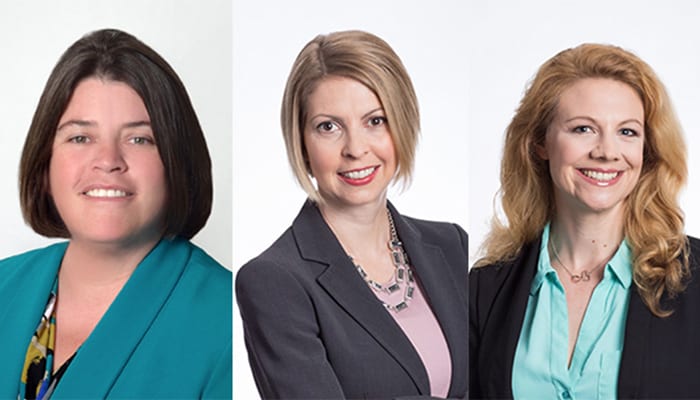News
PGS discusses careers in science policy with Lewis-Burke
 Going from the lab to Capitol Hill may seem like a strange career change, but this is the path taken by three Ph.D.s from Lewis-Burke Associates LLC., a science advocacy firm in Washington, D.C. Last week, they shared their experiences with graduate students and postdocs from the Boyce Thompson Institute (BTI).
Going from the lab to Capitol Hill may seem like a strange career change, but this is the path taken by three Ph.D.s from Lewis-Burke Associates LLC., a science advocacy firm in Washington, D.C. Last week, they shared their experiences with graduate students and postdocs from the Boyce Thompson Institute (BTI).
Members of the Postgraduate Society (PGS) at BTI partnered with Advancing Science And Policy (ASAP) at Cornell University to host a workshop on career opportunities in science policy. The session came about through BTI board member April Burke, the founder and president of the firm. Ph.D. scientists have diverse career paths, and science policy is one avenue where people can use their scientific training for the public good.
The panel included Erin Cadwalader, Libby O’Hare and Naomi Webber, who each described the first steps of their career change. Cadwalader earned her Ph.D. at the University of Utah in developmental biology, but it was seeing her undergraduate advisor, James Thompson, the first person to derive a human embryonic stem cell, advise the Bush administration about proper use of stem cells that sparked an interest in politics. “I was seeing my colleagues testifying before congress and talking to the media and I realized that there was a space for scientists who understand policy and communications,” said Cadwalader.
O’Hare was a postdoc in neuroscience at University of California, Berkeley when she noticed her colleagues having difficulty finding jobs. She won a fellowship that led to a staff job with Congressman Rush Holt of Central New Jersey. As a staffer, she dealt with issues like energy and the environment, the postal service and how to manage parks and public land.
“Going from a neuroscience postdoc in a lab setting into being a legislative assistant in the House of Representatives was about as dramatic a shift, I think, that you could possibly have,” said O’Hare.
Naomi Webber spent much of her time as physical chemistry Ph.D. student at the University of East Anglia alone, in a pitch-black lab, studying ultrafast lasers. She decided that in her future career, she wanted to work with people and see the sun on occasion. Before joining Lewis-Burke, she worked for Research Councils U.K. and now specializes in international research collaborations.
The group counseled Ph.D. students and postdocs that if using their background and passion for science to advise a congressperson on how to vote, craft talking points in speeches and talk through issues with advocacy groups and constituents is appealing, then science policy might be the right career path.
O’Hare recommends applying to the AAAS Science and Technology Fellowship, which enabled her to work with Holt. But if fellowships are not an option, whether for financial or citizenship reasons, she suggests looking into scientific and professional societies, advocacy organizations related to your research, and research administration positions at institutions and universities. Federal jobs are also a possibility, but government employment can be difficult to break into. A job at a philanthropic foundation can be a more expedient option, and can also serve as a stepping stone into a policy job.
If possible, it’s best to network with these organizations rather than sending in blind applications, said Cadwalader. Informational interviews and working your personal network can help distinguish a candidate from the many Ph.D.s who are already in D.C.
Unlike in academia, where jobs are few but the steps are clear, developing experience in policy work can seem like a meandering process. But there are lots of ways to craft a satisfying career. The pace of work can be brisk, and turnover is frequent. But, the group advises, that is precisely why policy jobs in D.C. can be so exciting and challenging.

